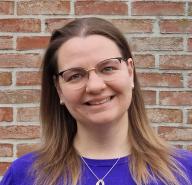 \
&
Contact us
\
&
Contact us
 \
&
Contact us
\
&
Contact us
DIGITAL funds projects in a broad range of topics and addresses a large group of different stakeholders such as SMEs, higher education and research institutions, public administrations and companies.

marie.timmermann@fwo.be
+32 2 550 15 59
Find the contact info on the site of WEWIS
The National Contact Points (NCPs) provide support, guidance, and practical information to potential applicants, helping them navigate funding opportunities and application processes.
The Programme Committee (PC) members represent their country in decision-making about the work programmes, evaluate implementation, and provide strategic input on priorities and calls.
The Digital Europe programme (DIGITAL) aims to support the digital transition in the EU by fostering the uptake of digital technologies by businesses, citizens and public administration and enhancing digital skills of the workforce. DIGITAL is structured around different special objectives.
The Stargate project obtained funding under the special Green Deal call of Horizon 2020, more in particular under the topic of “green ports and airports”. It received the maximum score of the evaluators and was selected out of more than 40 projects. Stargate’s purpose is to prove that sustainable aviation is possible and happening. It focuses on the further decarbonization of the aviation industry, the improvement of local environmental quality and the stimulation of the modal split. Together with a consortium of 21 European partners with a diverse and rich expertise (airports, community partners, knowledge institutions, consultants, local governments, …), Brussels Airports takes the lead as lighthouse airport to develop and implement innovative solutions. Results that prove successful can be deployed at the fellow airports (Toulouse, Budapest, Athens). Over the course of the coming five years, the consortium will exchange knowledge to investigate and realize more than 30 concrete projects.